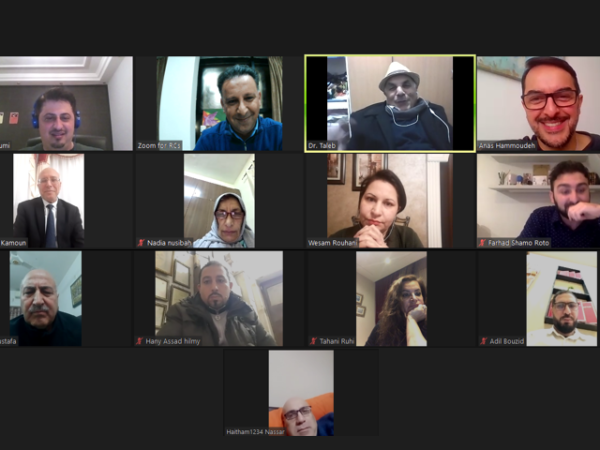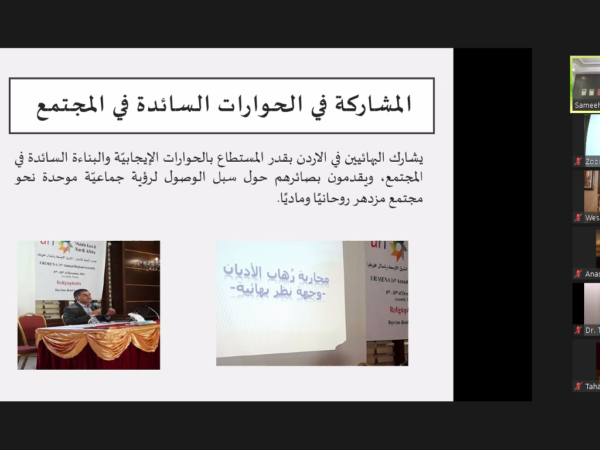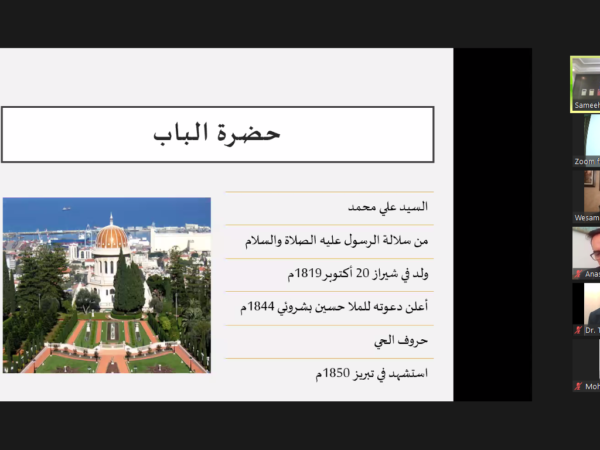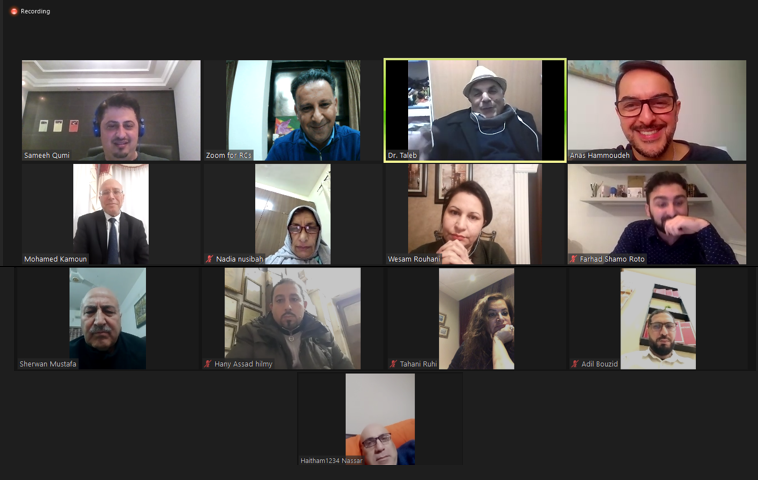URI MENA Cultural Café – 39 session
On Saturday, 16 Jan. 2021, our Cultural café session was on Baha’i Faith by Mr. Sameeh Qumi, a social worker of Baha’i community in Jordan and a member of Naya CC in Jordan.
Mr. Qumi introduced Baha’i faith history, relationship with other religions and key principles. Also, he explained how Baha’is contribute to community building and social development highlighting their involvement in the life of society
Major takeaways
• Baha’i faith core principles: (1) The oneness of God (2) The oneness of humanity and (3) The unity of religions
• Harmony of religion and science, equality of men and women and creating or choosing a universal language are part of Baha’is faith’s principles.
• One of the fundamental teachings of the Baha’i Faith is that men and women are equal. The world of humanity is possessed of two wings — the male and the female. As long as these two wings are not equivalent in strength, the bird will not fly. Humanity cannot wing its way to heights of real attainment.
• Baha’is throughout the world—both individually and collectively—strive to become involved in the life of society, working shoulder to shoulder with various groups to contribute to the advancement of material and spiritual civilization.
• Baha’is contribute to community building by offering moral and spiritual education for children and young people, as well as devotional gatherings where groups of people can meet in a spiritually uplifting atmosphere.
• For Baha’is, the potential of human beings is limitless. Each person, regardless of sex, race, creed or nation is considered to be inherently endowed with rich qualities, virtues and powers.
• A Bahá’í wedding can take whatever form the participants want; the only essential is that both partners say “We will all, verily, abide by the will of God” in front of witnesses
• Baha’is should avoid divorce and only in rare and urgent circumstances be resorted to. Bahá’ís wanting a divorce are required to announce their intention to divorce and then live apart for a year before they get it. During the year they should attempt a reconciliation with the help of the local spiritual assembly.




